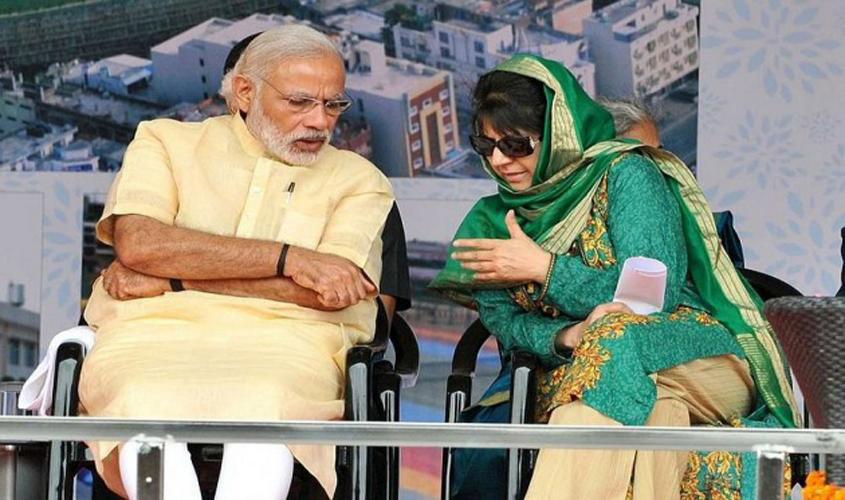 After months of bloodshed, the Central government has appointed an Intelligence Bureau director as its point-man to engage with the stakeholders in Kashmir, including the separatist leadership. This is perceived as a major concession by New Delhi to those in Kashmir who have been seeking a dialogue. At a time when frenzied street violence is taking its toll—panic has engulfed the Valley on braid chopping incidents, and politicians and political workers are facing life threats—a political approach is the only way out. However, most Kashmiris describe this as too little too late. Mainstream politicians and separatists are not keen on talking to an intelligence man on a volatile issue like Kashmir. They expected some astute politician of consequence to be appointed as the interlocutor.
After months of bloodshed, the Central government has appointed an Intelligence Bureau director as its point-man to engage with the stakeholders in Kashmir, including the separatist leadership. This is perceived as a major concession by New Delhi to those in Kashmir who have been seeking a dialogue. At a time when frenzied street violence is taking its toll—panic has engulfed the Valley on braid chopping incidents, and politicians and political workers are facing life threats—a political approach is the only way out. However, most Kashmiris describe this as too little too late. Mainstream politicians and separatists are not keen on talking to an intelligence man on a volatile issue like Kashmir. They expected some astute politician of consequence to be appointed as the interlocutor.
Meanwhile, the ink has not dried on the order of the appointment, and a fierce skirmish has broken out between the national parties on the issue of Kashmir’s autonomy. The BJP may term it as an anti national demand, but the issue is bound to come up in the talks. Though issues of accession and national security are non negotiable, yet the status of Articles 370 and 35A and other sensitive political issues are likely to come up for discussion even with those who are not in mainstream polity. All this has the potential to hobble the point man’s efforts.
The 2014 elections in J&K had brought in hope and aspiration in the people, and particularly the youth of Kashmir valley—that they would benefit from the economic development and progress promised by the BJP and Narendra Modi to the aspiring youth of India. People decided to give peace and economic development a chance and through their large participation in the elections, defeated all the incumbent ministers and the previous government. It was expected, from 2014 onwards and after the first ever woman Chief Minister, Mehbooba Mufti took over that the agenda of alliance would be followed in order to create a policy of containment, to limit and scale down the violence and open a peace process with inclusive political discourse and also bring in economic prosperity through uniform and sustained development, opening up avenues of employment for the youth. Instead, despair and disappointment have set in among the people.
Unabated militant activities have created instability. The state, by resorting to muscular retribution, has ensured that militants and mercenaries get killed
Mainstream politicians and separatists are not keen on talking to an intelligence man.
Amid this, civil society must rise to the occasion to initiate, strengthen and defend the peace agenda. It must ensure that there is no further loss of innocent lives. The fruits of development will have to reach to every deserving citizen. The Central and state governments need to win the people’s trust and confidence and may have to ensure the following confidence building measures:
* The Centre has to reinforce and implement schemes such as Udaan and Himayat to augment the employment avenues, along with special scholarship schemes launched by MHRD to create opportunities for empowerment.
* Release all political detainees against whom there are no criminal charges.
* Allocate a financial support package for the realisation of the economic entitlement and the political rights of the people of J&K.
* Work out a time-bound plan to facilitate the dignified return and rehabilitation of the exiled Kashmiri Pandits in the valley.
* Initiate an intra-regional cohesion and balance of power and resources within the three regions of the state, and launch a propaganda blitz to blunt the radicalised political discourse.
* Increase the synergy between Central agencies and the state police for combating terrorism.
* Offer a special package for the socio-political and economic empowerment of women.
Ashok Bhan is a senior advocate with the Supreme Court of India and chairman of the Kashmir Policy & Strategy Group.

